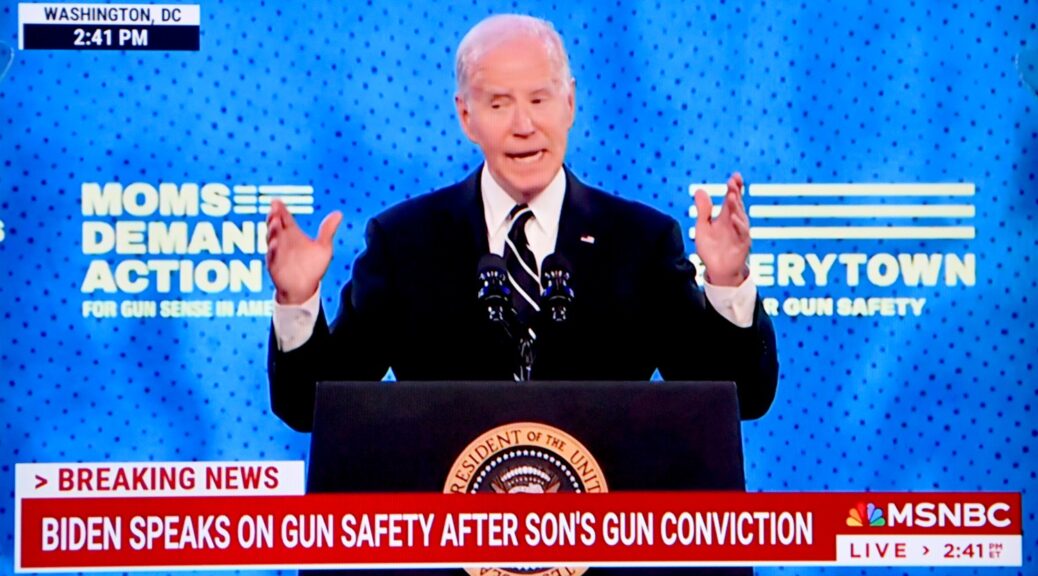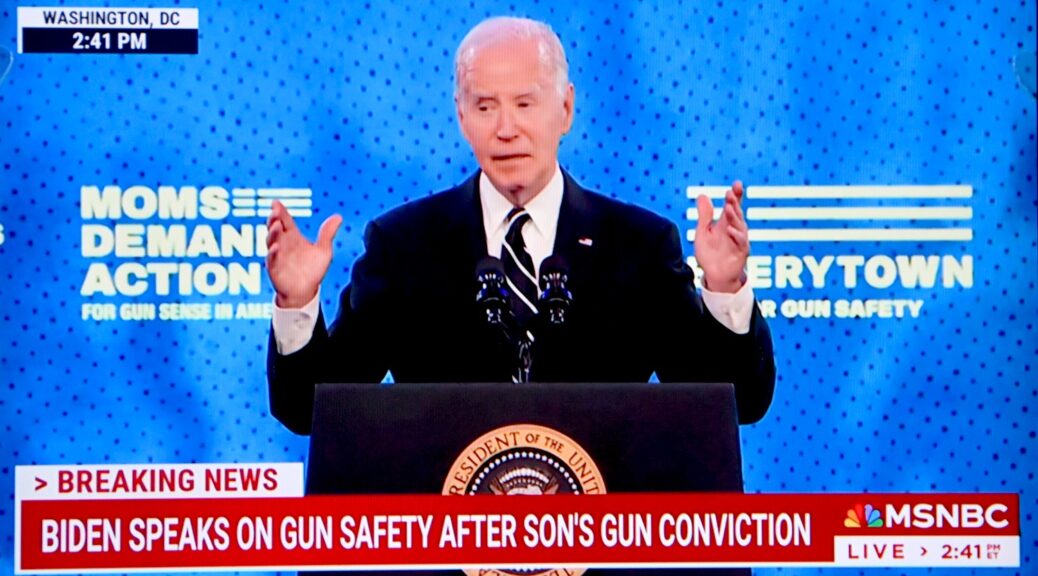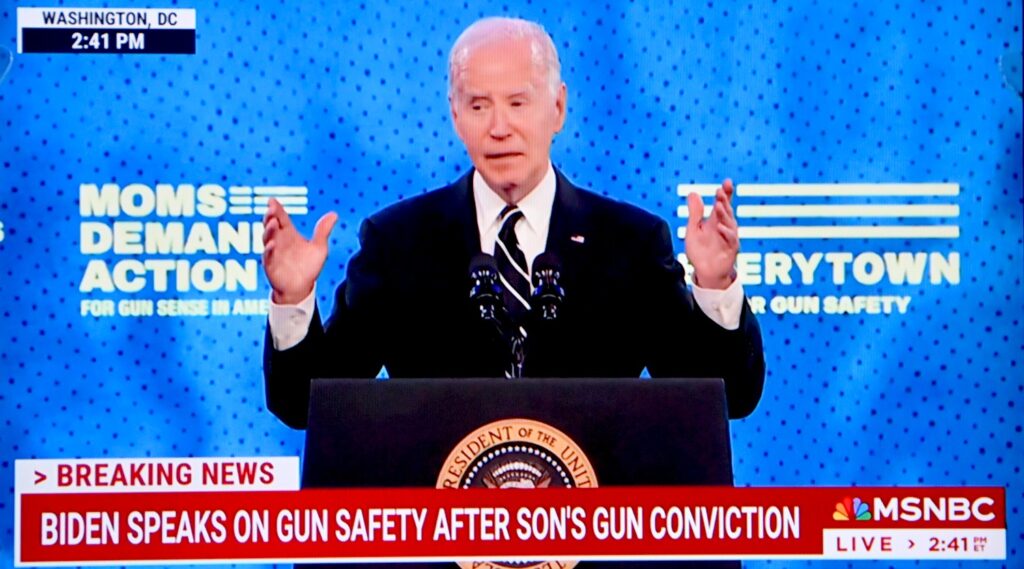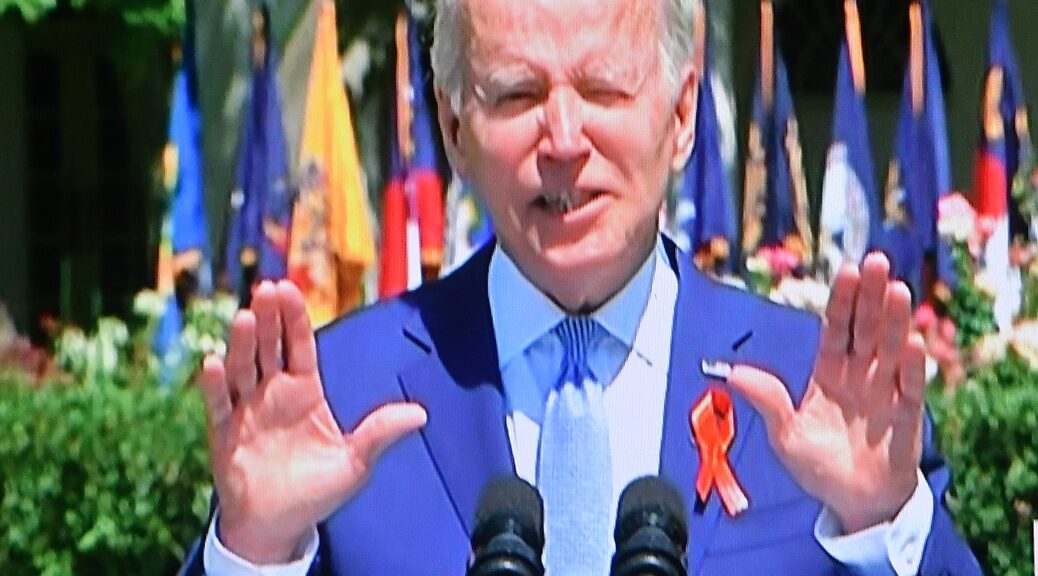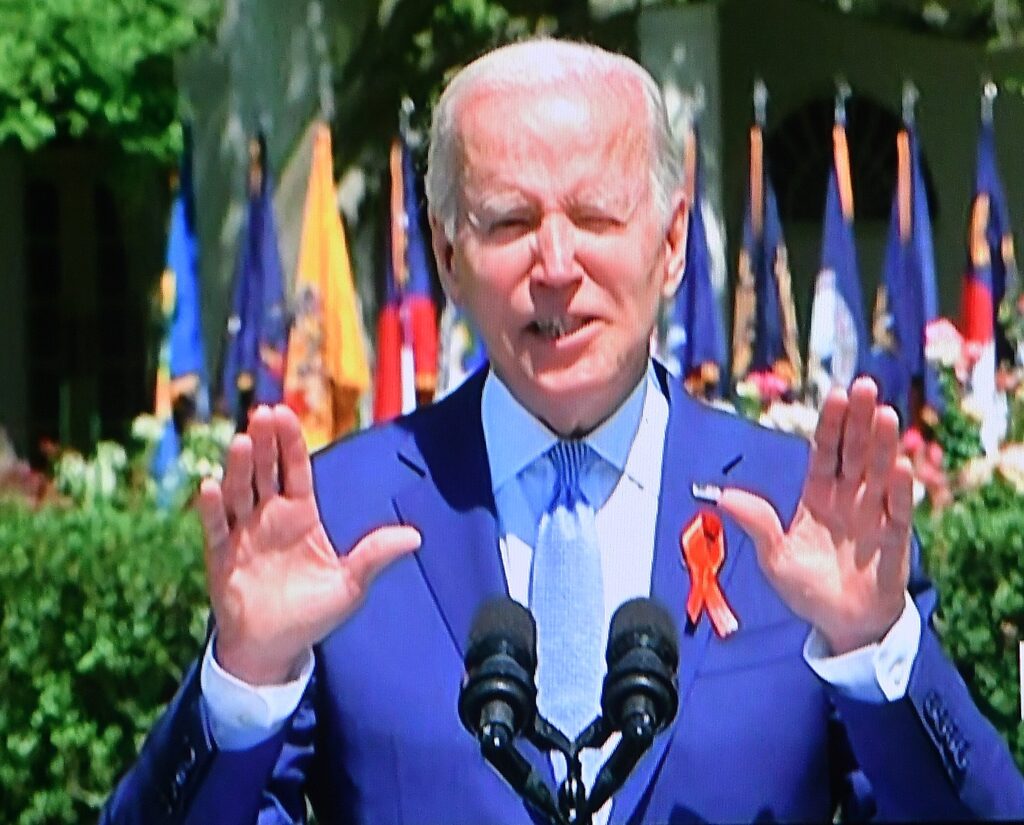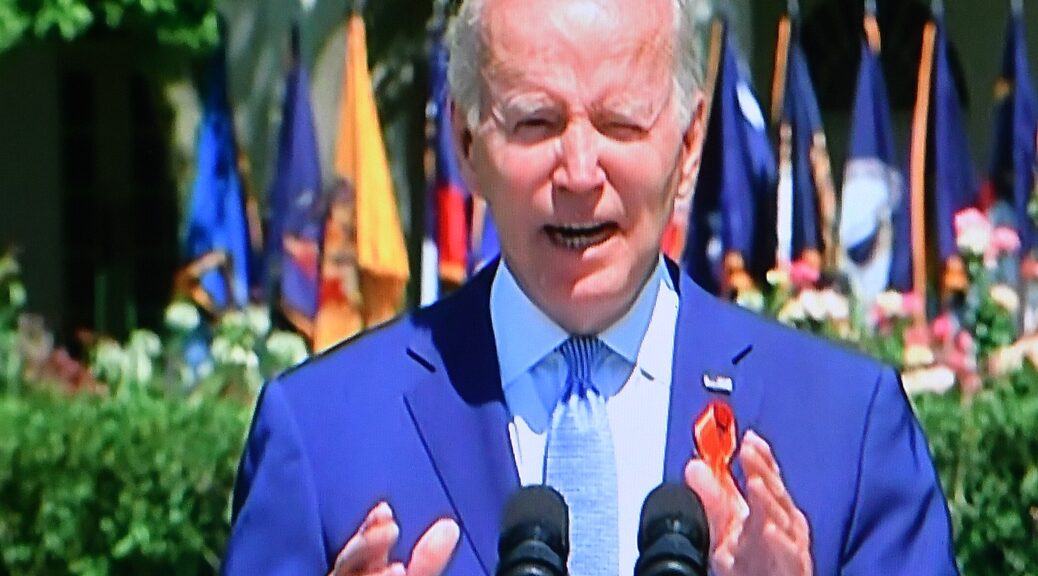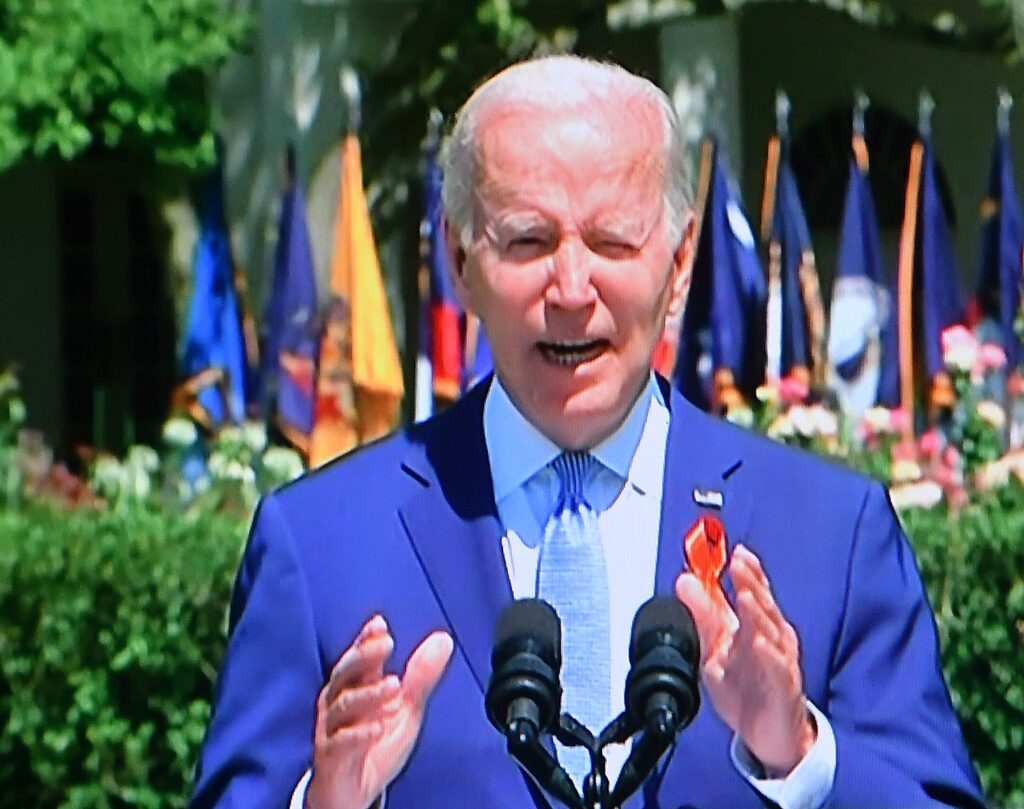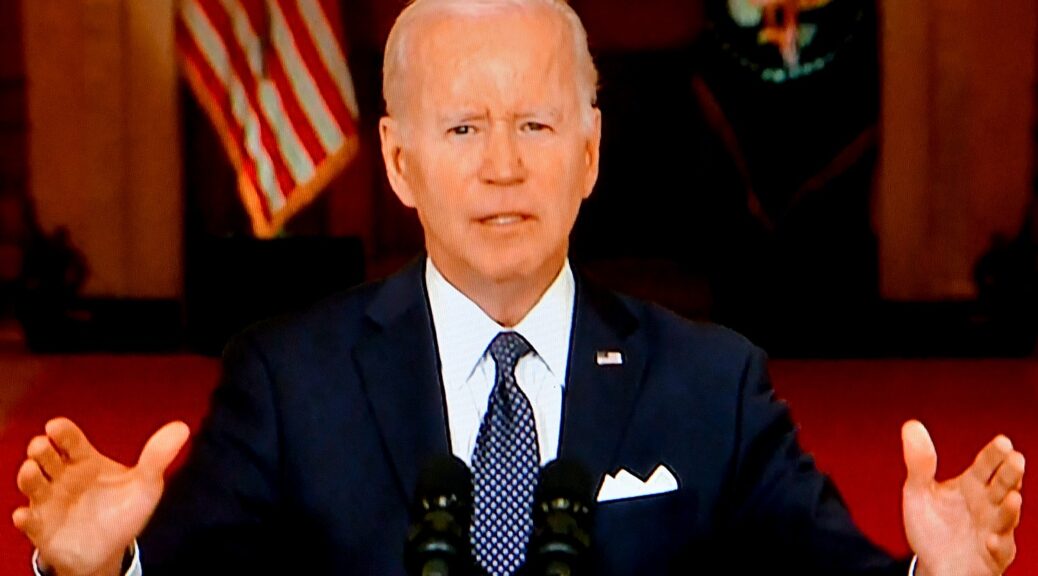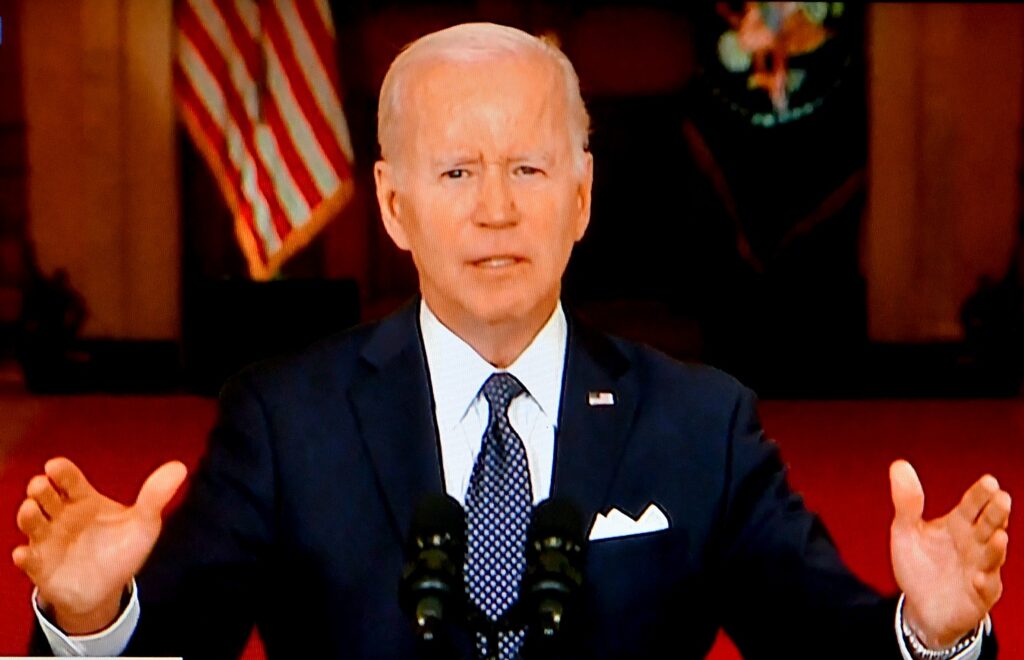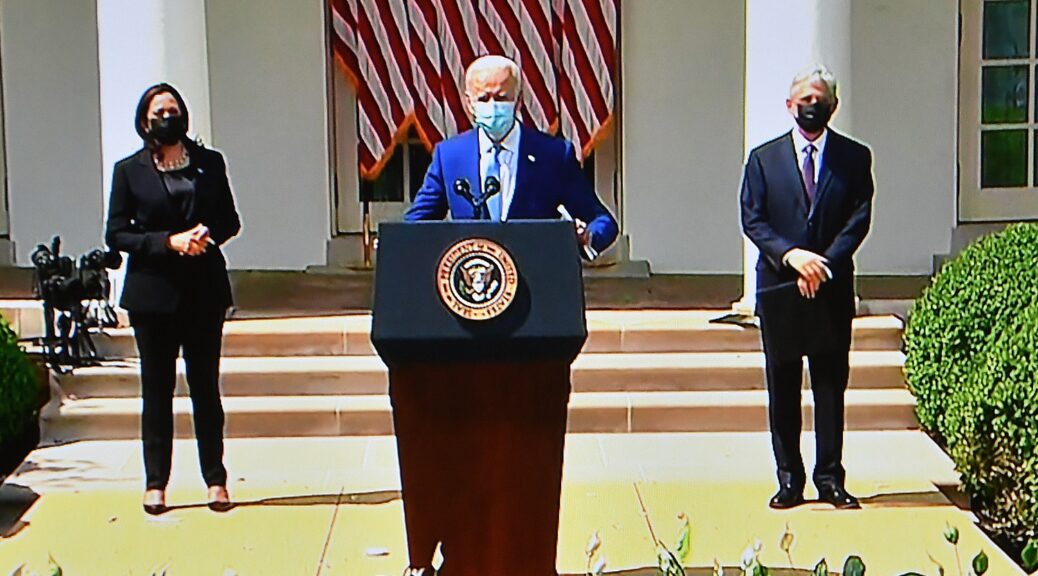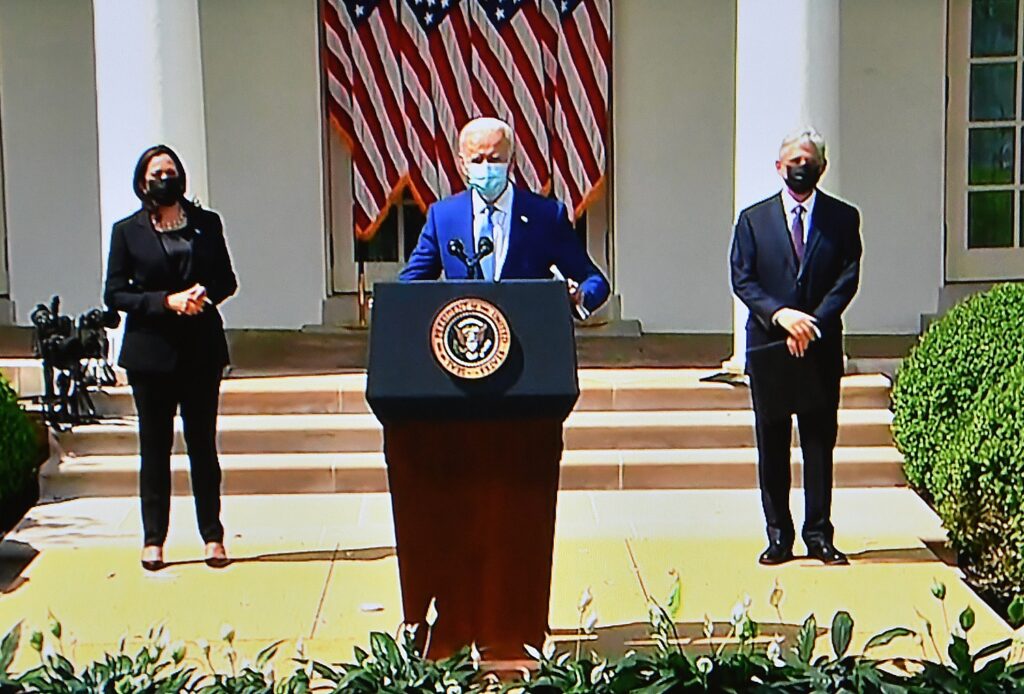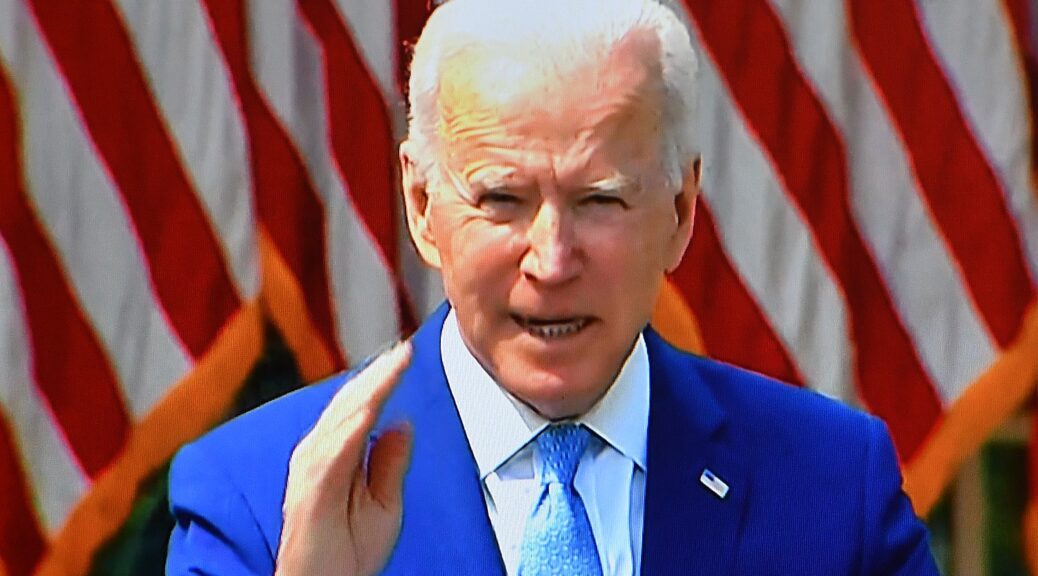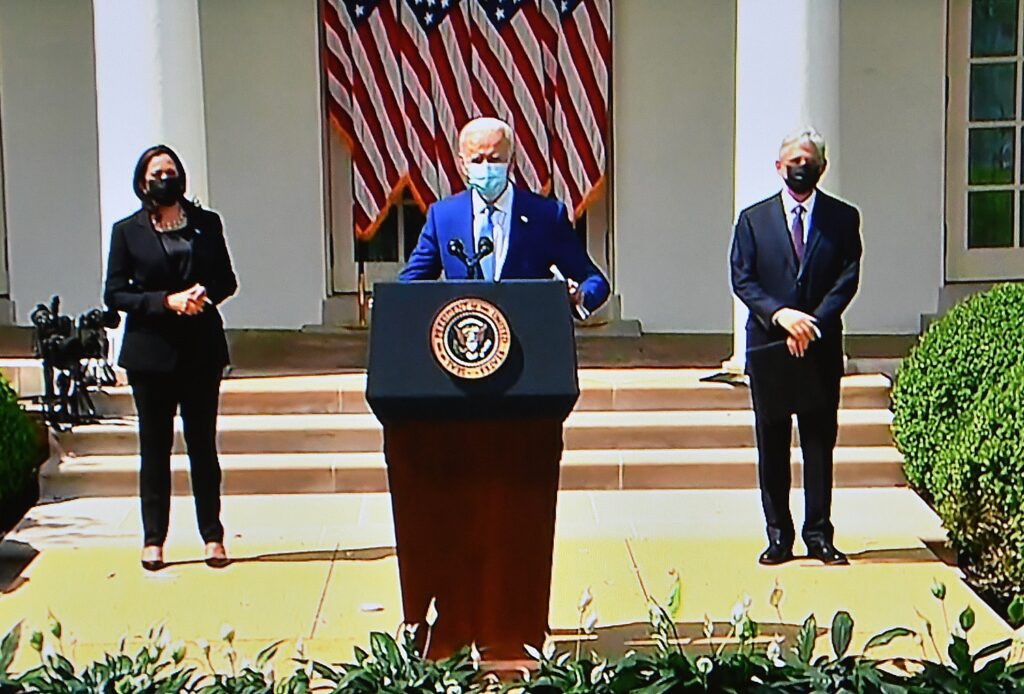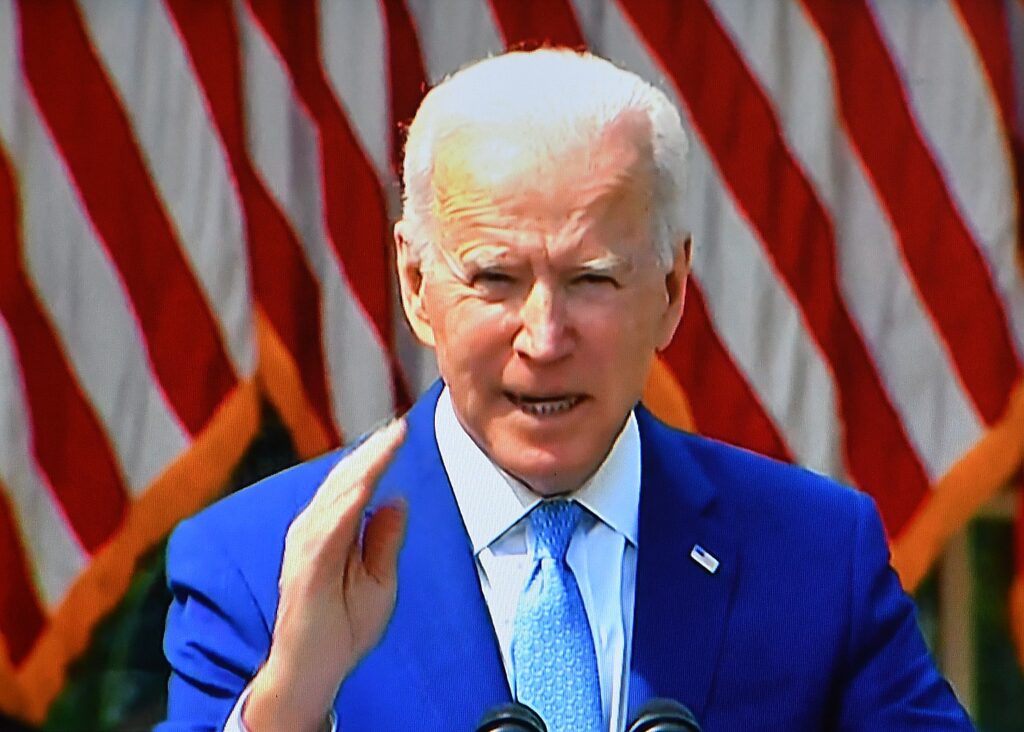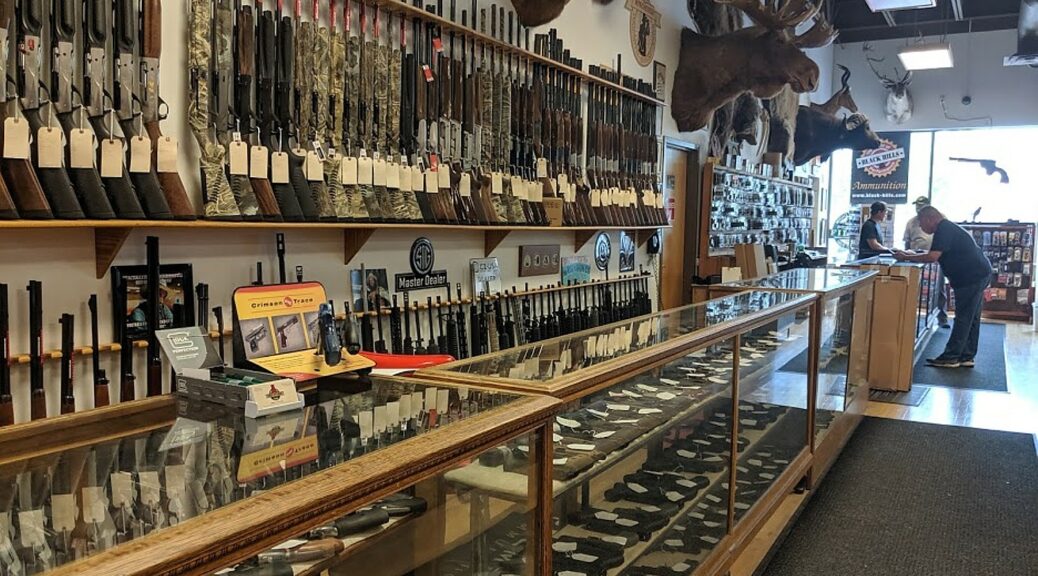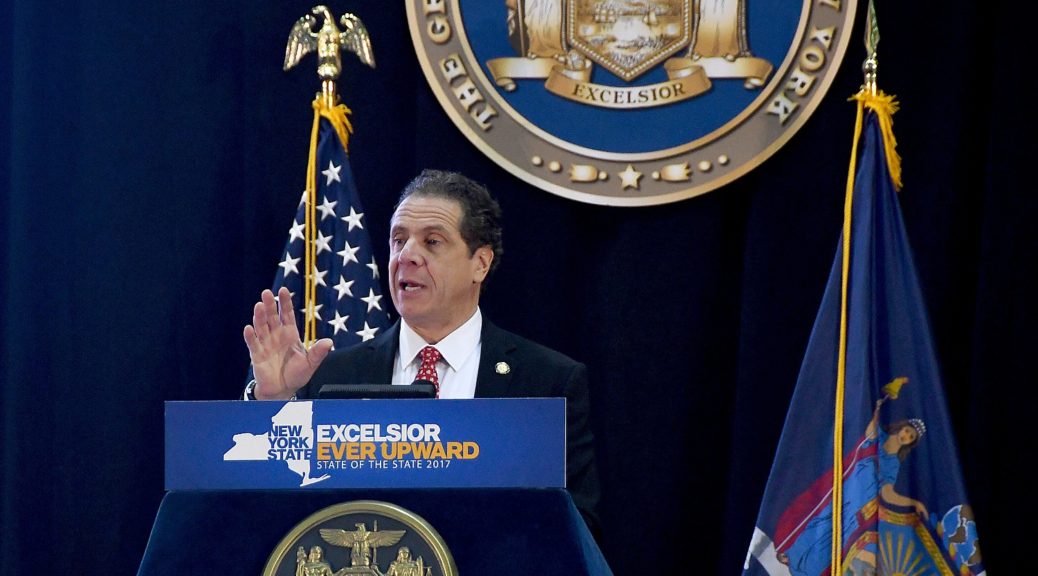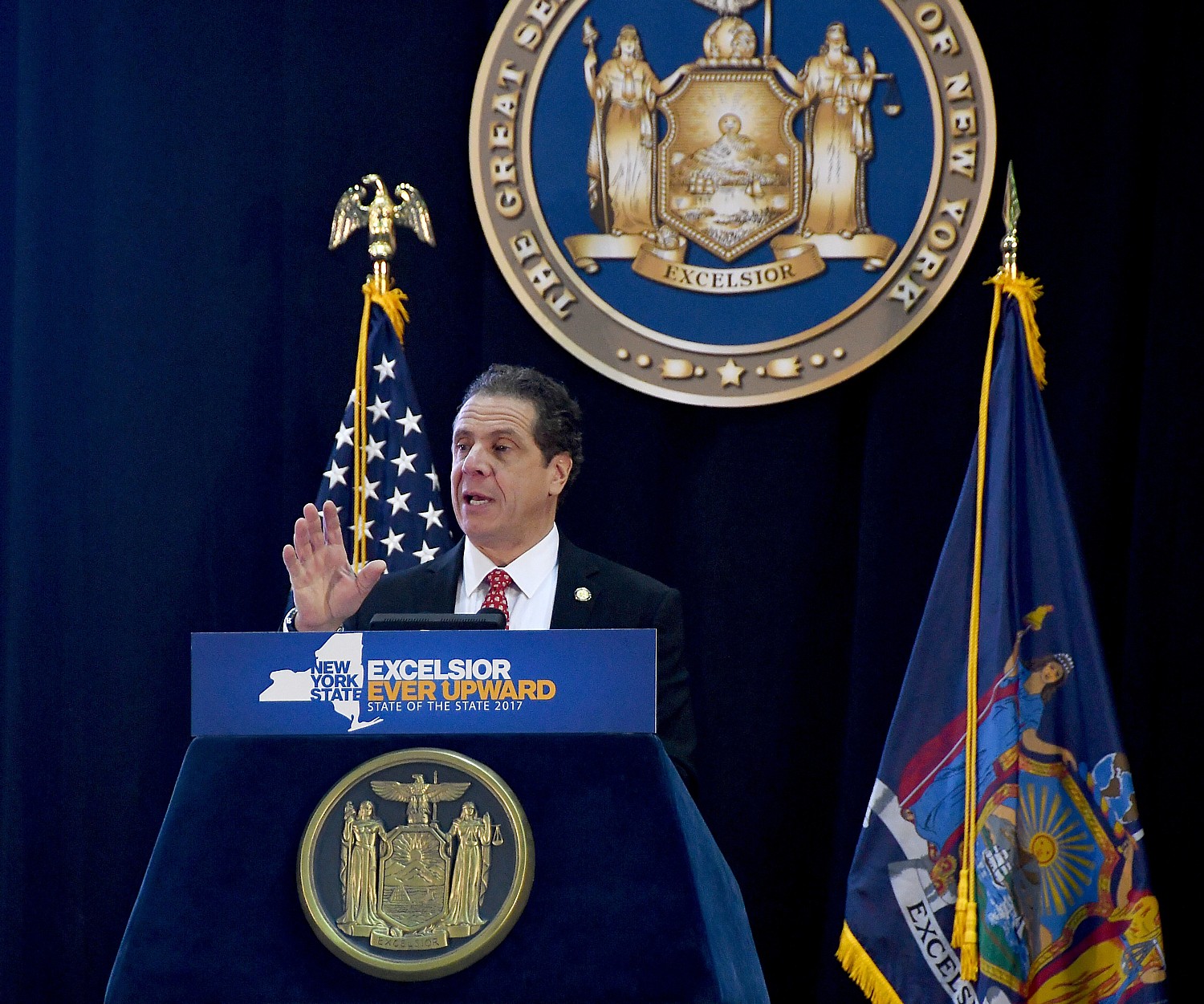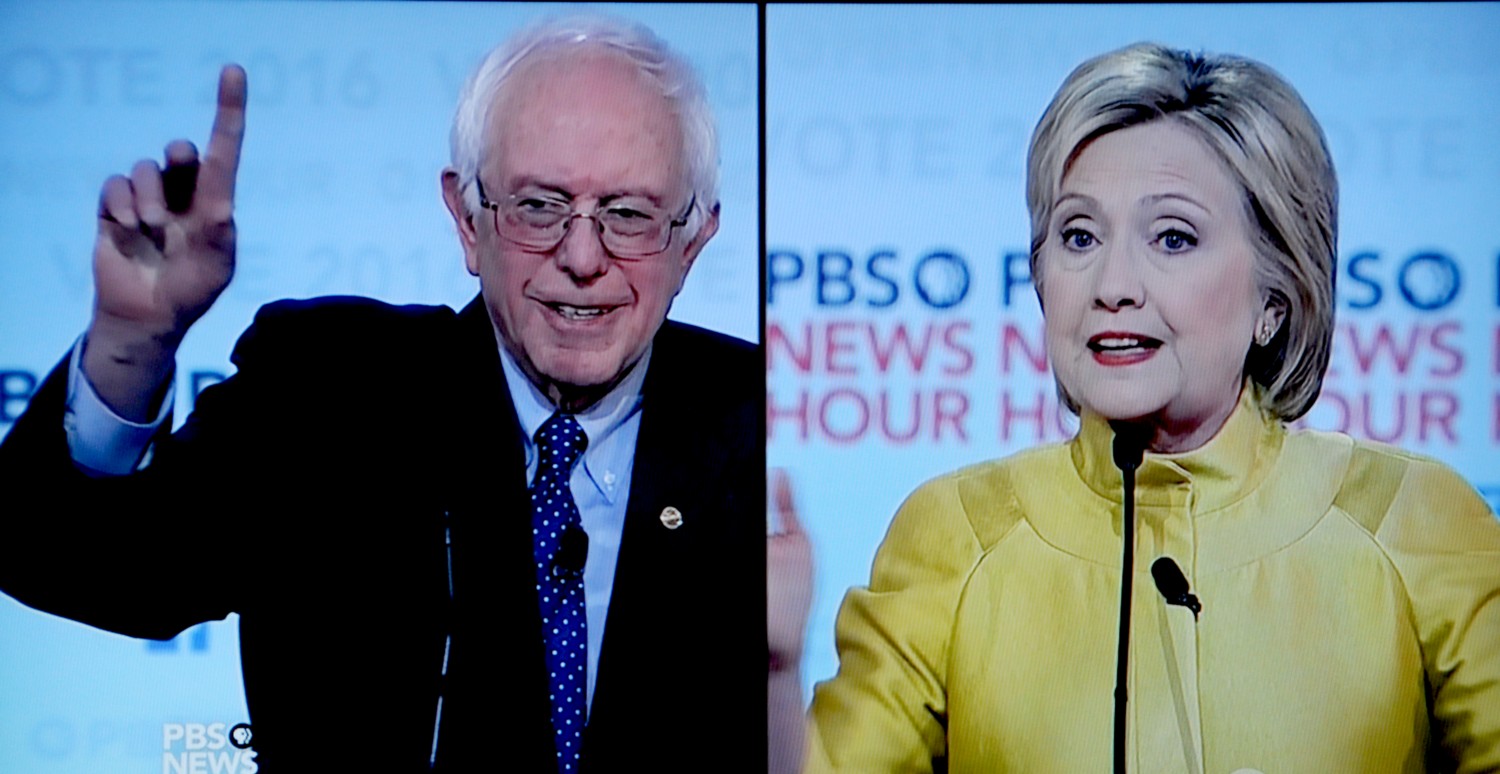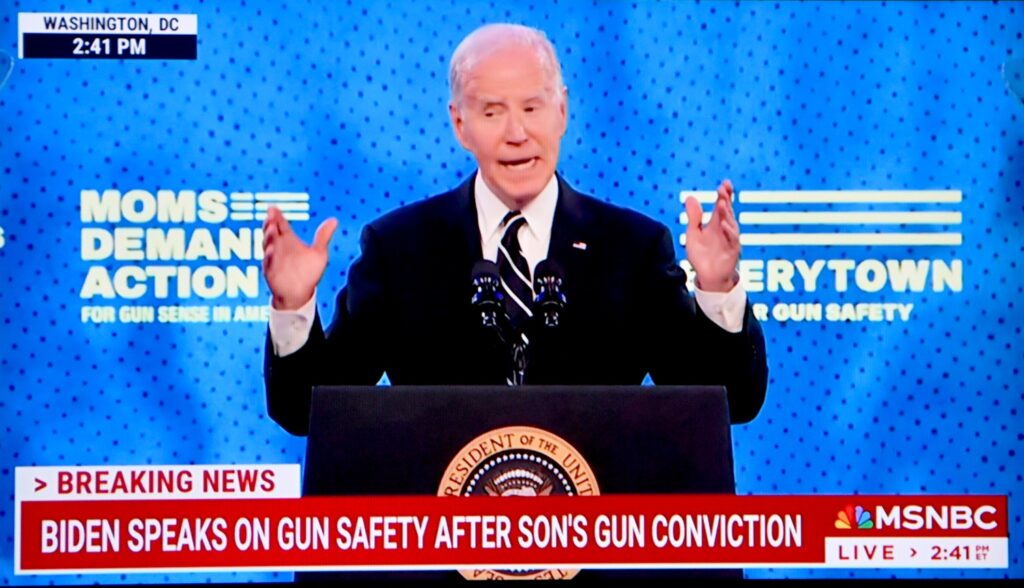
Less than two hours after hearing his only surviving son, Hunter, was found guilty of 3 gun possession offenses, President Joe Biden stood steadfast to uphold policies and laws to reduce America’s gun violence epidemic and change America’s cultural idolatry with guns. In that moment, he did two critical things befitting a president and a man of character and commitment: he upheld the rule of Law and the judicial process, saying he would respect the jury’s verdict and would not pardon his son, and vowed to continue the yeoman’s job of reversing America’s uniquely horrendous level of gun violence. (See: Biden Lauds Everytown, Moms Demand Action GunSense Activists; Points to Historic Progress But More to Do to Stem Gun Violence). –Karen Rubin/news-photos-features.com
Here is an edited transcript of his remarks:
Julvonnia, I know from experience it takes extraordinary courage for you to stand up here and retell your son’s story — and many of you who have lost someone to gun violence. It’s been a passion of mine for a long, long time.
It’s the reason way back, a long time ago, I authored the Violence Against Women Act, which no one thought made any sense at the time. It had — I had a lot of trouble getting people to think we could make a difference.
But the fact of the matter is I remember well when you first started it with me — this extraordinary courage. You know, through your words, you help ensure that your son and all the victims of gun violence are not forgotten. They didn’t die in vain. Through your love, you help prevent the next tragedy. It saves lives.
And through your actions, you remember us — we’ll never let go of one thing that we must never, never lose. And I mean this. I know it’s hard because I’ve gotten those phone calls, too, saying I lost a son, a daughter, a wife. I know what it’s like. But guess what? Never give up on hope — hope, hope, hope. (Applause.)
I give you my word. I know what that feels — that black hole when you receive that phone call that seems like you’re — black hole in your chest — you’re being sucked into it. Just showing up here and all the work you’ve done takes some courage because it reminds you of the mo- — moment you got that phone call. It reminds you, no matter how long it goes, until y- — it just — it’s hard. But you’re so — you’re ma- — you’re making such a difference. The main reason I’m here is to say — and I mean this from the bottom of my heart –…
Folks, to Everytown and all the leaders and advocates here today, I want to thank you for the dedication to this vital issue you’ve shown.
And to all the survivors, veterans, families, moms who have turned their pain and your purpose into the loss and you’re determined to not focus on your anger but on what you can do.
Look, folks, you’ve helped power a movement that is turning this cause into reality — especially young people, who demanded our nation do better to protect us all — (applause) — who protested, who organized, who voted, who ran for office, and, yes, who marched for their lives. (Applause.)
From my perspective, today is about celebrating you. You’re the reason I’m so optimistic about the future of our country, and I mean that.
In two weeks, we’ll mark the second anniversary of the Bipartisan Safer Communities Act. (Applause.) It’s the most significant gun legislation in nearly 30 years, and we passed it only because you gone out and vou worked like hell to get it done. May have the idea, but you got it ma- — you made it happen.
It was designed to reduce gun violence and save lives. And I’m so proud of the tremendous progress we’ve made since then.
You know, the year before I came to the presidency, the murder rate was the highest increase on record. Last year, we saw the largest decrease of murder in the history of (inaudible). (Applause.) And those rates are continuing to fall faster than ever.
Last year, we also saw one of the lowest rates of all violent crime in nearly 50 years. Murder, rape, aggravated assault, robbery all dropped sharply, along with burglary and property crime. (Applause.) Becau- — this matters.
So much of this progress is because — and I’m not just trying to be solicitous — it’s because of you. Don’t underestimate what you have done. It’s amazing what you have done. You changed people’s minds — your neighbors, your friends, the folks down at the restaurant, the folks at the grocery store.
Through the American Rescue Plan, I was able to invest $15 billion, the largest investment ever to reduce crime. And we built on that progress, with your help, the Bipa- — (applause) — through the Bipartisan Safer Communities Act.
And here’s how. First, the act is helping reduce community violence and domestic violence. It invests $250 million in violence intervention programs all across the country. (Applause.) People are now — my daughter is a social worker working with violence against women. What people don’t realize is these things matter. They change attitudes.
We’ve already funded nearly 80 programs and counting. We also made gun trafficking and straw purchasing a federal crime for the first time, giving prosecutors the legal tools to charge traffickers and hold them accountable for the more severe penalties that are available. (Applause.)
Additionally, the law strengthens background checks for anyone under the age of 21 trying to purchase a firearm. And it’s about time. There’s more we have to do there. It’s a big deal. (Applause.) Since the law was passed and implemented, the FBI has stopped more than 700 sales of firearms for individuals under the age of 21.
And about 20,000 unlicensed firearms dealer are now required to become licensed to run background checks — (applause) — which will keep guns out of dangerous hands.
Second, the act helps stops mass shootings, provides $750 million to state — to — to states to implement their crisis interventions like red flag laws that temporarily remove firearms from those who are in danger to themselves or others. (Applause.)
It also gives $1.3 billion to thousands of schools across the country to build a safer learning environments, including (applause) updating safety plans, installing security equipment, hiring mental health professionals and school resource officers — (applause) — I’m married to a full-time teacher; I get it — (applause) — as well as violence intervention teams.
Folks, look, third, the act invests over $1 billion, the largest one-time investment ever in mental health — youth mental health in our schools — (applause) — to help them deal with grief and trauma resulting in gun violence. I’ve attended too many mass shootings — I’ve gone to too many schools across America and stood there and looked at the faces of those young children who made it and look at all the families that lost somebody. It’s tragic. But it needs help. They need help to get through it.
It includes an additional 14,000 mental health professionals to be hired and trained in our schools — to work in our schools full time. That’s 14,000 more. And — (applause) — and over 170,000 Americans across the country have been trained to identify when someone is having a mental health crisis and connect them to the help they need. (Applause.)
By the way, one of the reasons I wrote the latest veterans bill was because more veterans and more active-duty personnel are dying of suicide than any combat zone. (Applause.) It matters.
And, folks, this historic law is already saving lives. But there is still so much more to do to maximize the benefits of the Bipartisan Safer Communities Act.
That’s why, last September, I established the first-ever White House Office of Gun Violence Prevention. (Applause.) And I mean it. We got first-rate professionals there and overseen by my incredible Vice President — (applause) — who is a pretty fierce prosecutor as well — to drive and coordinate government and nationwide effort to reduce gun violence in America. That’s why we did it. And to send a clear message about how important this issue is to me, to you, and to the entire country.
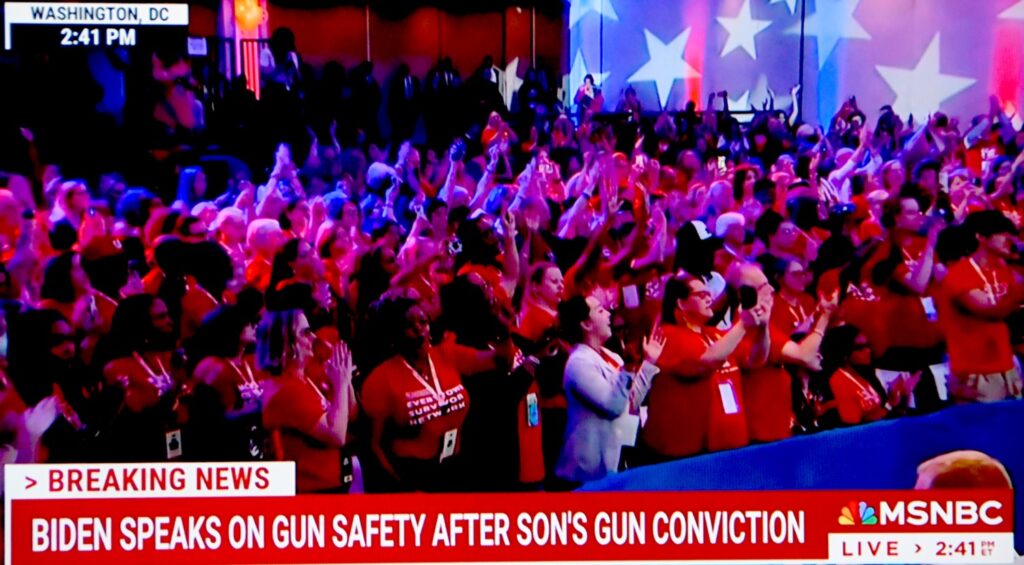
Folks — (applause) — you’re changing the nation. You really are. You’re changing the nation. It builds upon the dozen of executive actions my administration has taken to reduce gun violence — more than any of my predecessors, and I suspect more than all of them combined — everything from cracking down on ghost guns, gun trafficking, and so much more.
Folks, we’re not stopping there. It’s time, once again, to do what I did when I was a senator: ban assault weapons. (Applause.) I mean it.
AUDIENCE: Four more years! Four more years! Four more years!
THE PRESIDENT: Thank you.
Who in God’s name needs a magazine which can hold 200 shells?
AUDIENCE MEMBER: Nobody!
THE PRESIDENT: Nobody. That’s right….
But think about it. They’re weapons of war.
And, by the way, it’s time we establish universal background checks — (applause) — and require the safe storage of firearms. We should hold — (applause) — we should hold families responsible if they don’t provide those locks on those guns….
And, by the way, this is the most important: The only industry in America that has immunity are gun dealers. We got to end it — (applause) — end it now. No, I mean it.
Imagine — imagine if we gave — if we gave tobacco an exception they could not be prosecuted. We — what would happen? We’d still — a thousand more people would be dying of cancer because of smoke inhalation.
It’s time we increase funding for the Bureau of Alcohol, Tobacco, and Firearms and Explosives and other law enforcement agencies as well — (applause) — to solve the crimes faster.
Look, unfortunately — this is the only partisan thing I’m going to say — the congressional Republicans oppose all of these — every one of these. Instead of trying to stop our ban on ghost gun kits that can commit crimes, they’re working like hell to stop it. They want to abolish the Bureau of Alcohol, Tobacco, and Firearms and Explosives, which is responsible for fighting gun crimes.
You can’t be pro law enforcement and say you are pro law enforcement and be pro abolishing the AFT. (Applause.) You can’t do it. It’s outrageous…
What in God’s name is the rationale for taking away the Alcohol, Tobacco, and Firearms?
After a school shooting in Iowa that killed a student and a teacher, my predecessor was asked about it. You remember what he said. He said, “Have to get over it.” Hell no, we don’t have to get over it. (Applause.) We got to stop it. We got to stop it and stop it now. (Applause.)
More children are killed in America by guns than cancer and car accidents combined. (Applause.) My predecessor told the NRA convention recently he’s proud that, quote, “I did nothing on guns when I was president.” And by doing nothing, he made the situation considerably worse.
That’s why Everytown, why this summit, why all of you here today are so damn important. We need you. We need you to overcome the unrelenting opposition of the gun lobby, gun manufacturers, and so many politicians when they oppose commonsense gun legislation.
When I was no longer the vice president, I became a professor at the University of — of Pennsylvania. Before that, I taught a constitutional law class, and so I taught the Second Amendment.
There’s never been a time that says you can own anything you want. You couldn’t own a cannon during the Civil War. (Laughter.)..
And, by the way, if they want to think they — it’s to take on government if we get out of line, which they’re talking again about — well, guess what? They need F-15s. They don’t need a rifle. (Laughter.)
Folks, look, this is crazy, what we’re talking about. Because whether we’re Democrats or Republicans, we want all families to be safe. (Applause.) We all want to drop them off at a house of worship, a mall, a movie theater, a school without worrying if it’s the last time I’m going to get to see them. (Applause.) We all want our kids to have the freedom to learn how to read and write in schools instead of learning how to duck and cover, for God sake. (Applause.)
And above all — above all, we all agree: We are not finished. (Applause.) Look, no single — no single action can solve the entirety of the gun violence epidemic. But together, our efforts, your efforts are saving lives.
You can help rally a nation with a sense of urgency and seriousness of purpose. You’re changing the culture. We are proving we can do more than just thoughts and prayers — just more than thoughts and prayers. You’re changing politics. You’re proving that you’re powerful and you’re relentless, and I mean that.
Let me close with this. I know many people here have been impacted by gun violence and are tired and frustrated. (Applause.) No — no, I — I know. I’ve been to too many — I’ve literally spoken with well over a thousand families at these events that I’ve attended for mass shootings. And the look in their eyes — you can almost feel that black hole they feel in the center of their chest, like they’re being sucked in, there’s no way out. And if they have remaining children, you look at the children and they wonder, “Mommy, Daddy, how about me?”
And I know you may wonder: Are we ever going to make full progress that we need to make? I’m here to tell you we have no choice. We cannot give up trying for all the lives lost and all those who still there to save. We’re going to get there.
I have no illusions about how difficult it may be. But I also have no illusions about the people in this room.
You’re changing the attitude of the public — I really mean it. I’m going back to why I got here in the first place. That is to say thank you.
I can come up with all these ideas about the laws we can change to make it easier, but you’re changing people’s lives. You’re convincing your neighbors and people this is necessary. It’s beginning to move.
Look at what we’ve already done around the community. Look at the movement you’ve built, the elected officials standing with you. Look at all the mothers organizations across the country.
AUDIENCE MEMBER: Mr. President, you are making a change too! I love you so much! (Inaudible.) (Laughter and applause.)
THE PRESIDENT: (Applause.) Look —
When there’s a crisis, half of what people affected by a crisis have to know: Is anybody listening? Do you hear me? Do they hear what we’re saying?
Listen to the young people who are speaking out. That’s the power of the memory of your loved ones. That’s the power of this movement. That’s the power of America.
We just have to keep going and keep the faith and remember who we are. We are the United States of America, and there is nothing beyond our capacity when we act and do it together. (Applause.) So, God bless you all. And may God protect our troops. (Applause.)
Thank you, thank you, thank you. Keep it up. (Applause.) Thank you.

